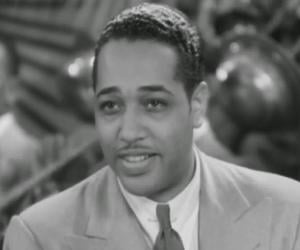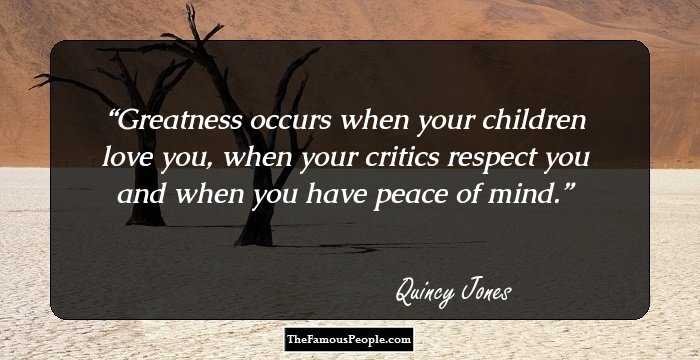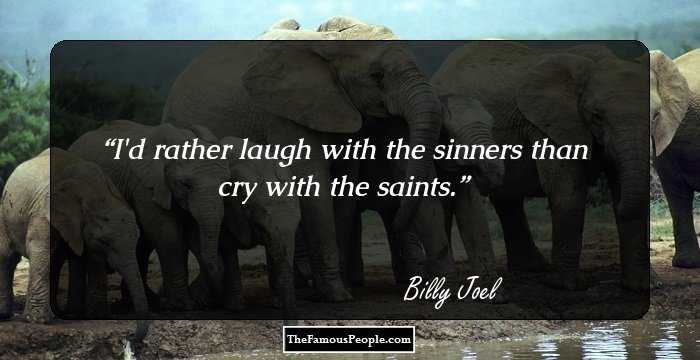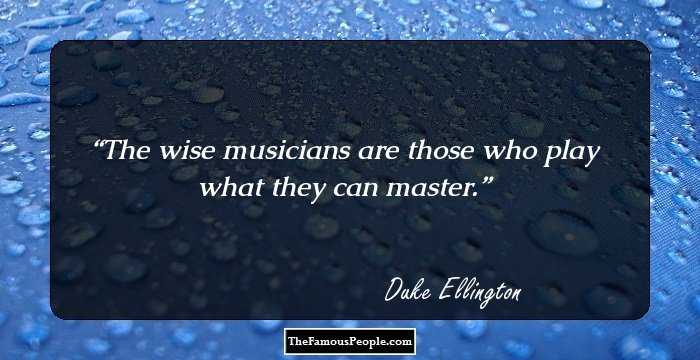
The wise musicians are those who play what they can master.
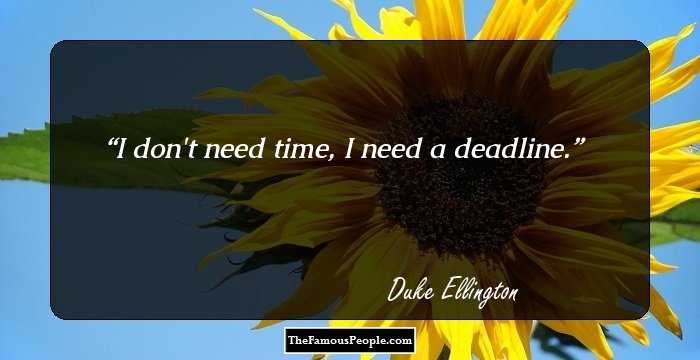
I don't need time, I need a deadline.
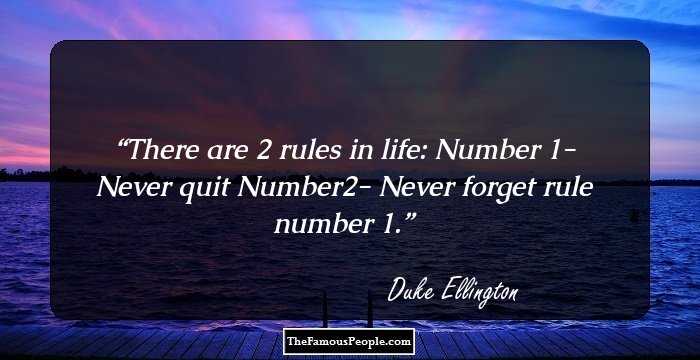
There are 2 rules in life: Number 1- Never quit Number2- Never forget rule number 1.
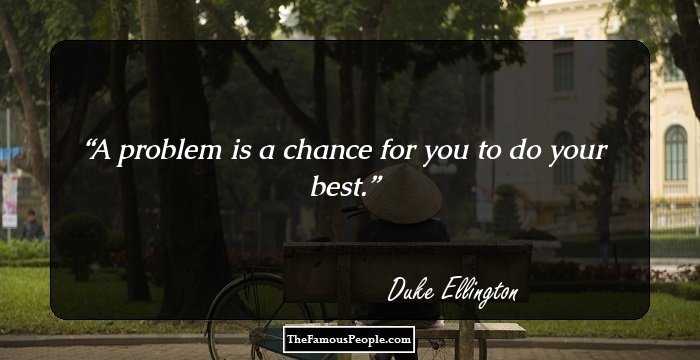
A problem is a chance for you to do your best.
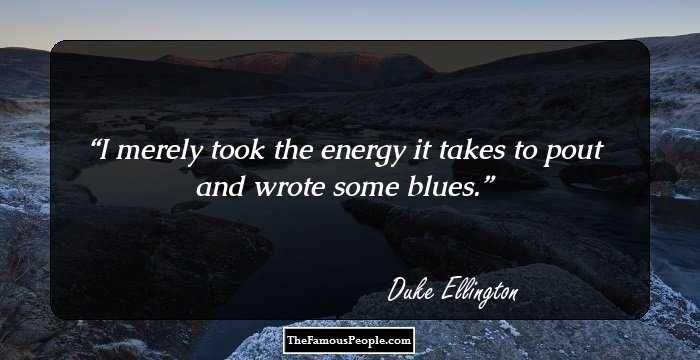
I merely took the energy it takes to pout and wrote some blues.

Gray skies are just clouds passing over.
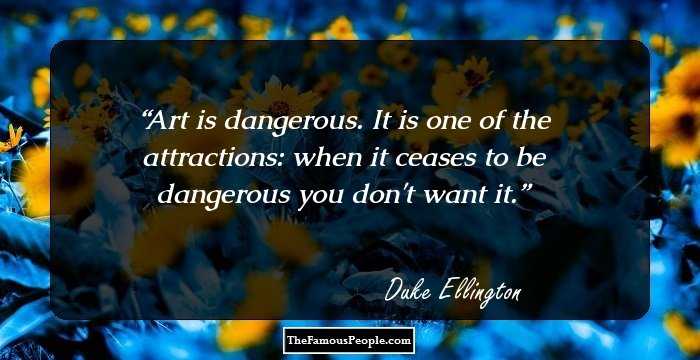
Art is dangerous. It is one of the attractions: when it ceases to be dangerous you don't want it.
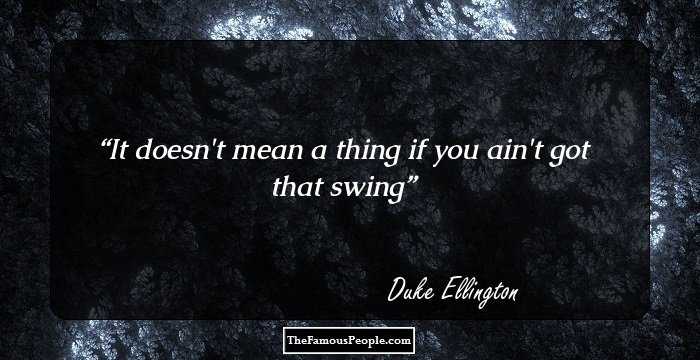
It doesn't mean a thing if you ain't got that swing
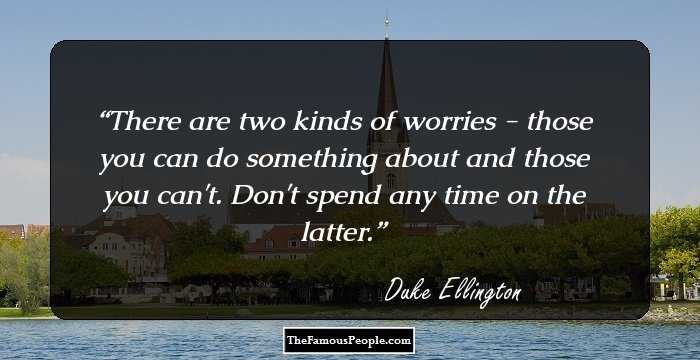
There are two kinds of worries - those you can do something about and those you can't. Don't spend any time on the latter.
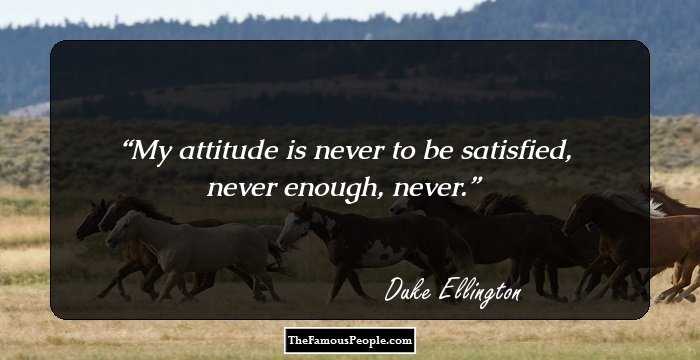
My attitude is never to be satisfied, never enough, never.
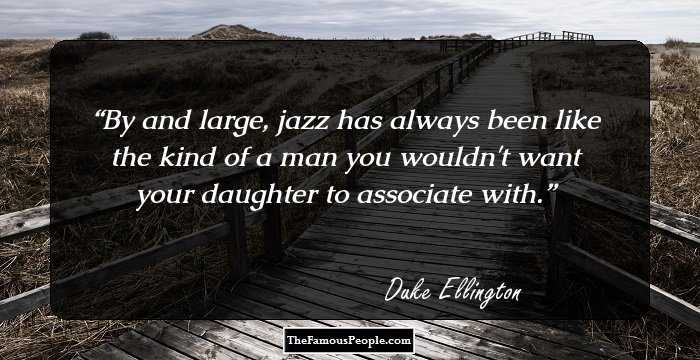
By and large, jazz has always been like the kind of a man you wouldn't want your daughter to associate with.
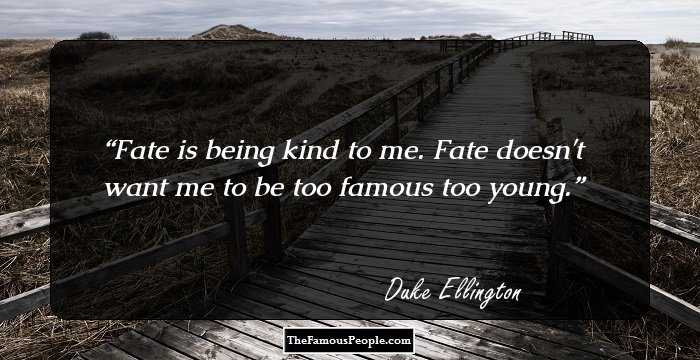
Fate is being kind to me. Fate doesn't want me to be too famous too young.
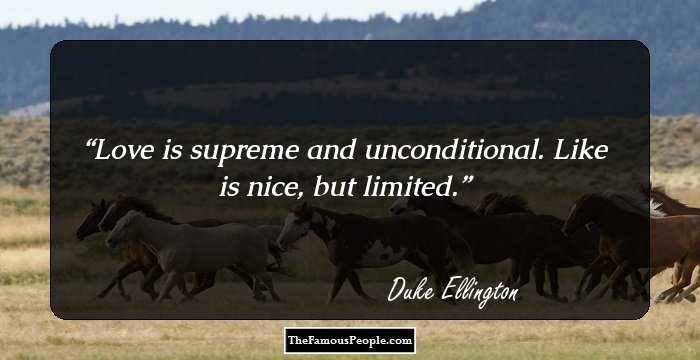
Love is supreme and unconditional. Like is nice, but limited.
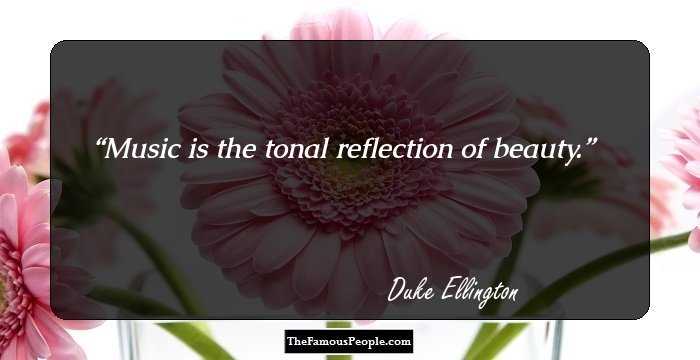
Music is the tonal reflection of beauty.

Playing 'bop' is like playing Scrabble with all the vowels missing.
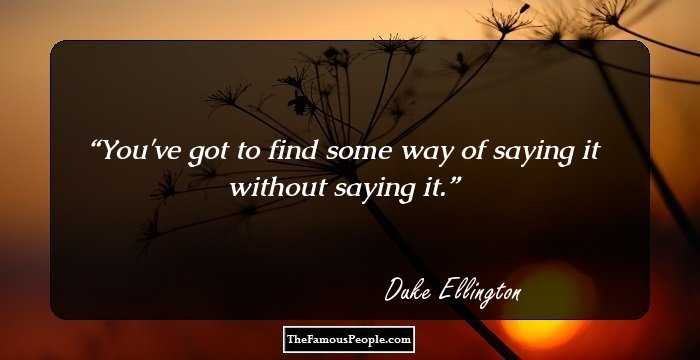
You've got to find some way of saying it without saying it.
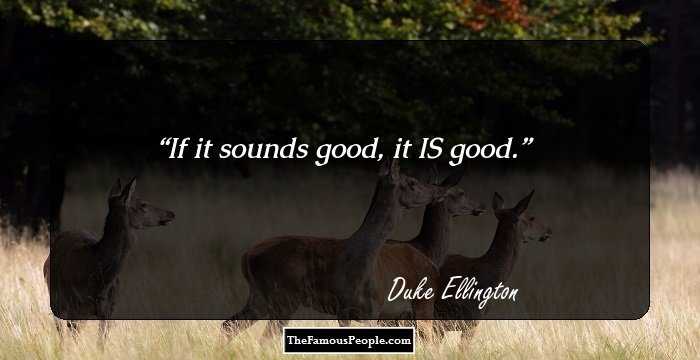
If it sounds good, it IS good.
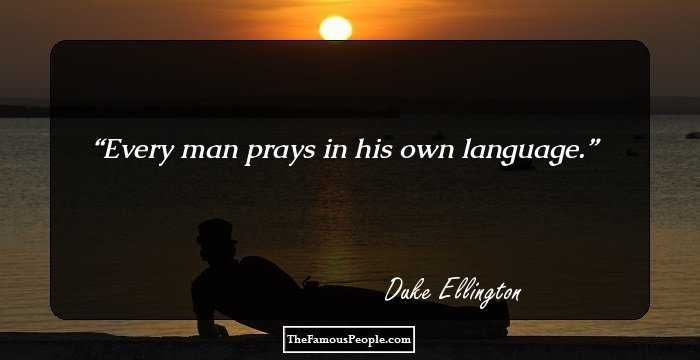
Every man prays in his own language.
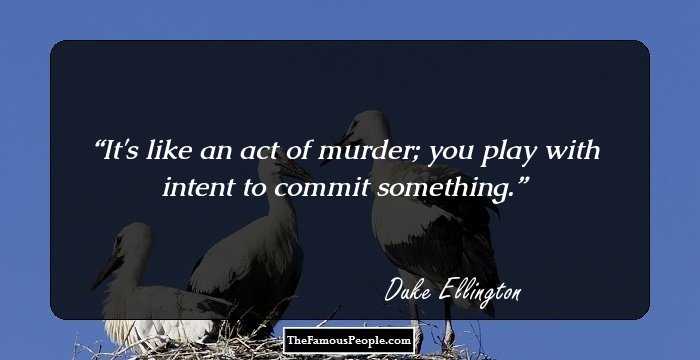
It's like an act of murder; you play with intent to commit something.
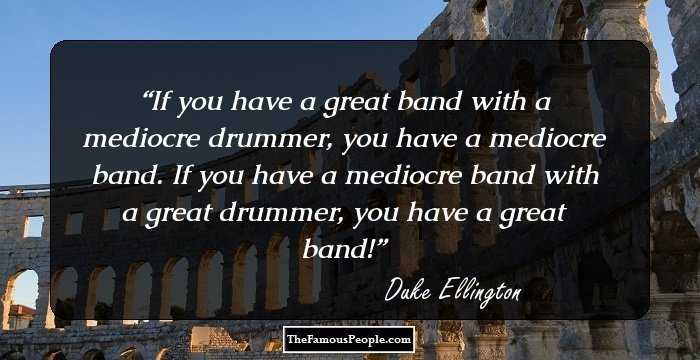
If you have a great band with a mediocre drummer, you have a mediocre band. If you have a mediocre band with a great drummer, you have a great band!
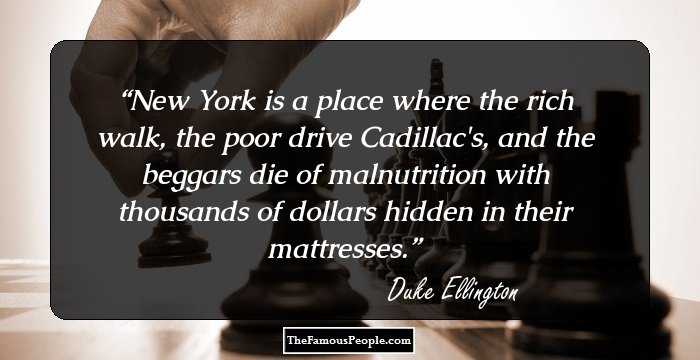
New York is a place where the rich walk, the poor drive Cadillac's, and the beggars die of malnutrition with thousands of dollars hidden in their mattresses.
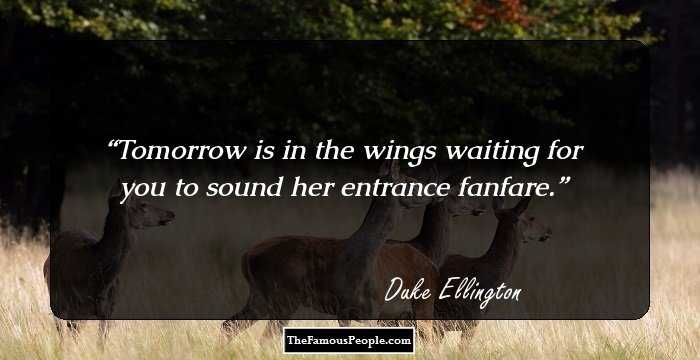
Tomorrow is in the wings waiting for you to sound her entrance fanfare.
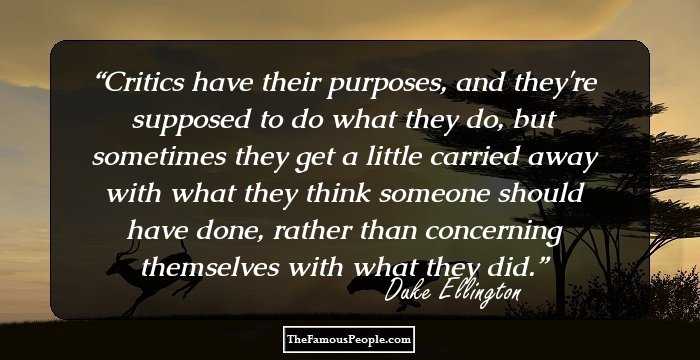
Critics have their purposes, and they're supposed to do what they do, but sometimes they get a little carried away with what they think someone should have done, rather than concerning themselves with what they did.
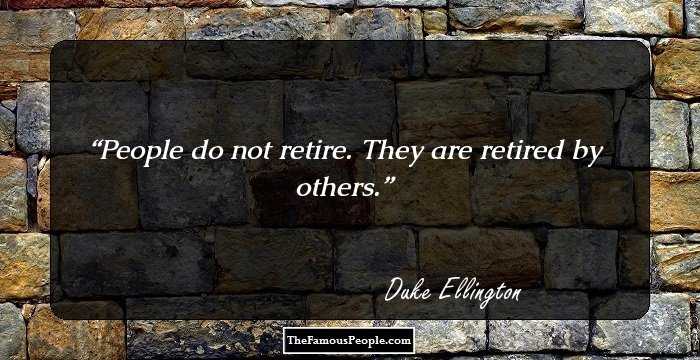
People do not retire. They are retired by others.
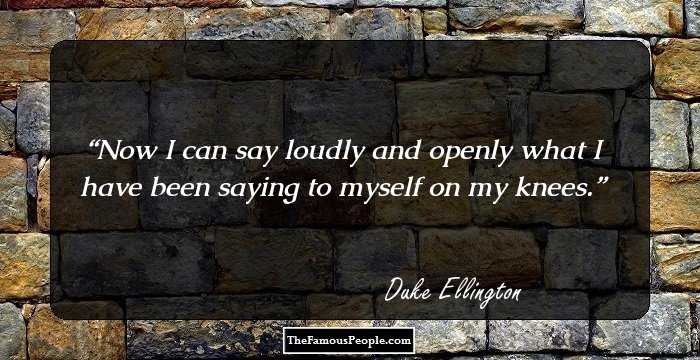
Now I can say loudly and openly what I have been saying to myself on my knees.
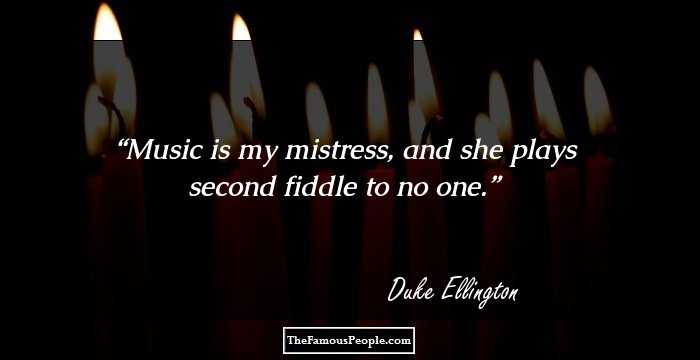
Music is my mistress, and she plays second fiddle to no one.
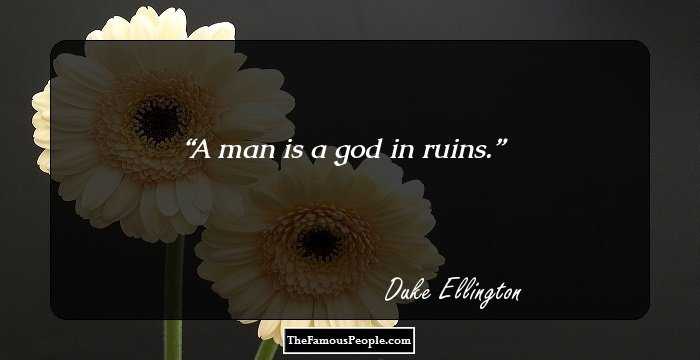
A man is a god in ruins.
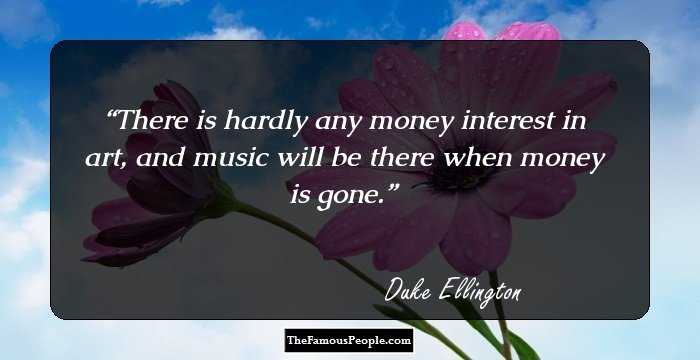
There is hardly any money interest in art, and music will be there when money is gone.
The common root, of course, comes out of Africa. That's the pulse.The African pulse. It's all the way back from . . . the old slave chants and up through the blues, the jazz, and up through rock. And it's all got the African pulse.
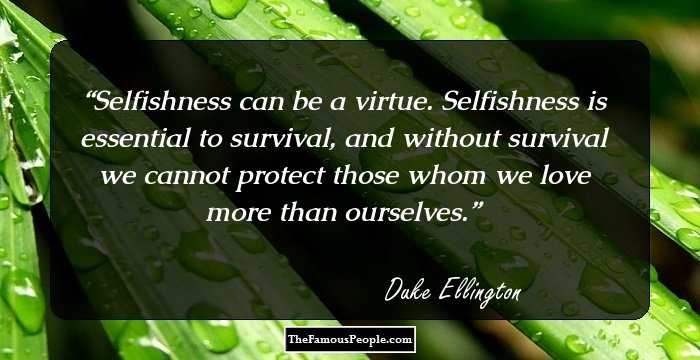
Selfishness can be a virtue. Selfishness is essential to survival, and without survival we cannot protect those whom we love more than ourselves.

